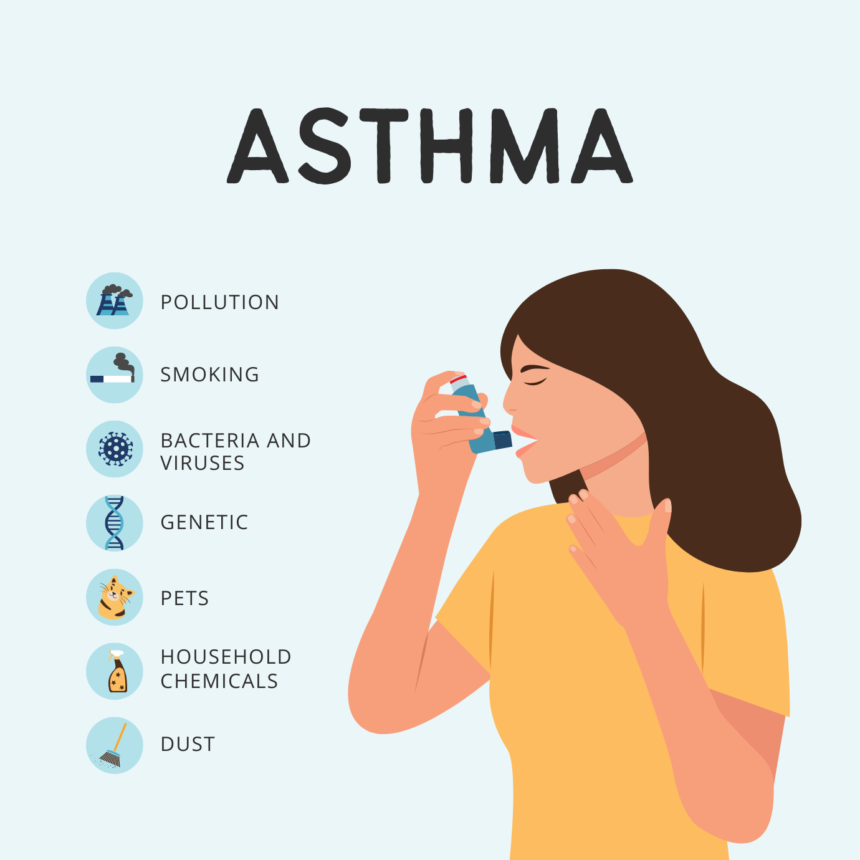This guide focuses on empowering individuals with asthma to manage their condition effectively and improve their overall quality of life. It provides practical strategies and lifestyle adjustments to help individuals lead fulfilling lives despite having asthma.
- Education and Understanding: The guide starts by emphasizing the importance of education about asthma. Understanding the nature of asthma, triggers, medications, and proper asthma management can empower individuals to take control of their condition.
- Asthma Action Plan: Having a written asthma action plan is crucial for day-to-day asthma management. The guide explains the components of an asthma action plan and how individuals can work with their healthcare providers to create a personalized plan tailored to their needs.
- Medication Management: Properly managing asthma medications is essential for controlling symptoms and preventing exacerbations. The guide provides tips on adhering to medication schedules, understanding the purpose of each medication, and recognizing potential side effects.
- Identifying Triggers: Identifying and avoiding asthma triggers is key to preventing flare-ups. The guide helps readers identify common triggers and provides tips on reducing exposure to allergens, pollutants, and other triggers.
- Healthy Lifestyle: A healthy lifestyle can significantly impact asthma management. The guide covers the importance of regular exercise, a balanced diet, and maintaining a healthy weight. It also emphasizes the benefits of quitting smoking and avoiding secondhand smoke.
- Stress Management: Stress can exacerbate asthma symptoms. The guide explores stress management techniques, such as relaxation exercises, mindfulness, and engaging in enjoyable activities to reduce stress levels.
- Environmental Control: Making small adjustments to the home environment can have a positive impact on asthma management. The guide provides tips on reducing allergens, improving indoor air quality, and creating an asthma-friendly living space.
- Physical Activity with Asthma: The guide offers guidance on staying physically active while managing asthma. It explains how individuals with asthma can participate in exercise safely, the importance of warming up, and recognizing when to take breaks during physical activities.
- Traveling with Asthma: Traveling with asthma requires some extra planning and preparation. The guide includes travel tips, such as carrying medications, having an updated asthma action plan, and researching medical facilities at the travel destination.
- Support Network: Having a support network can make a significant difference in managing asthma. The guide encourages individuals to communicate openly with family, friends, and co-workers about their condition and how they can provide support.
- Regular Check-ups: Regular check-ups with healthcare providers are essential for asthma management. The guide emphasizes the importance of staying up-to-date with asthma reviews, getting flu vaccinations, and seeking medical attention if asthma symptoms worsen.
By implementing these strategies and making positive changes in their daily lives, individuals with asthma can enhance their quality of life and reduce the impact of asthma on their overall well-being. The guide encourages readers to take an active role in their asthma management, work closely with healthcare providers, and remain proactive in preventing asthma flare-ups. With proper management and a supportive approach, individuals with asthma can lead fulfilling lives and thrive despite their condition.
